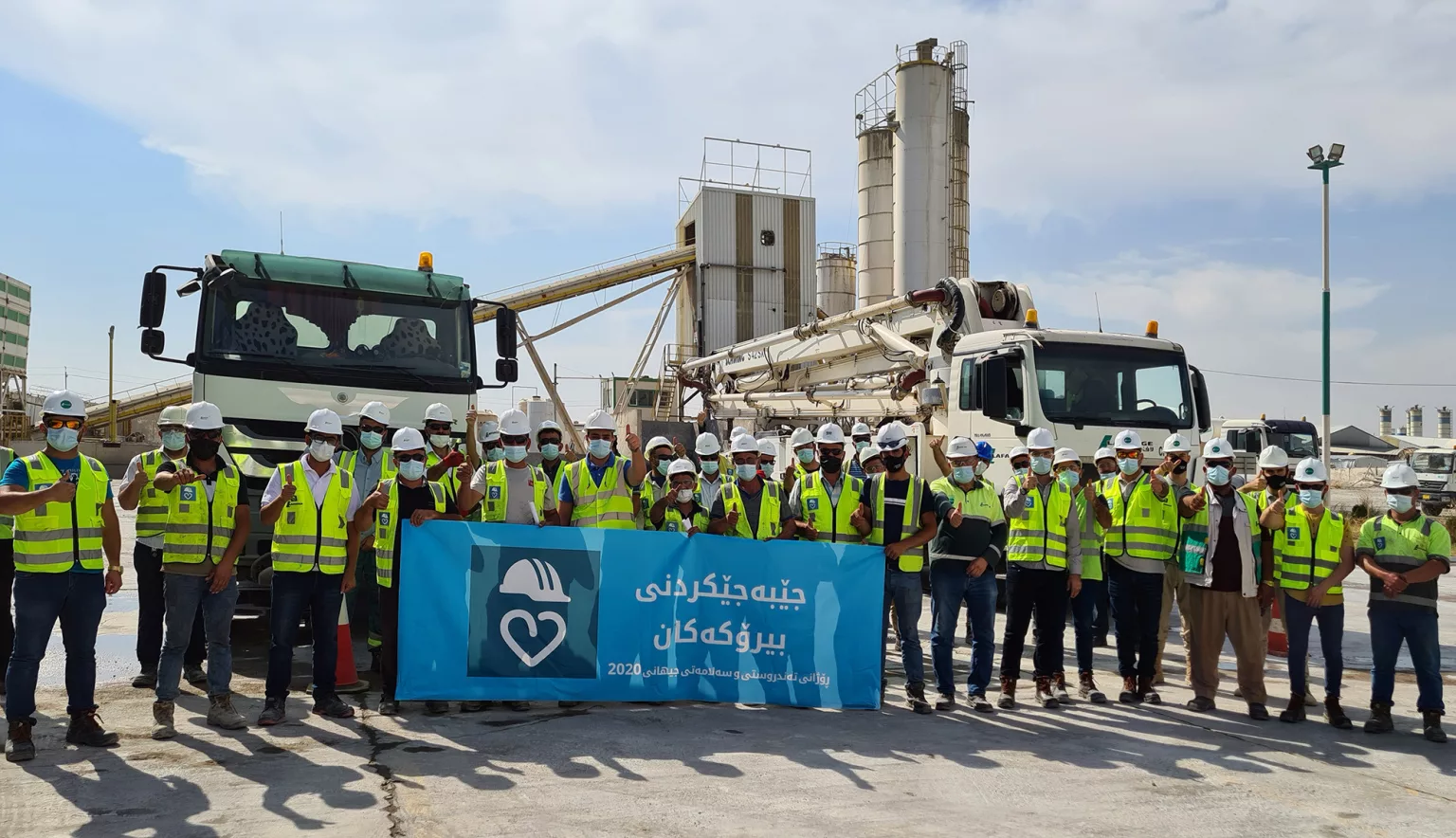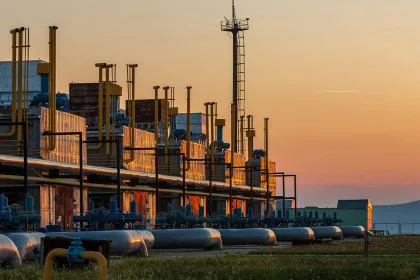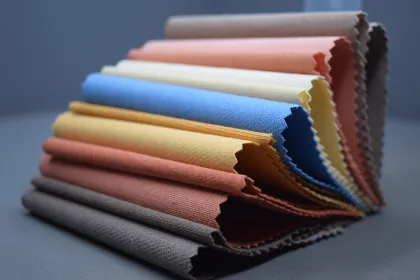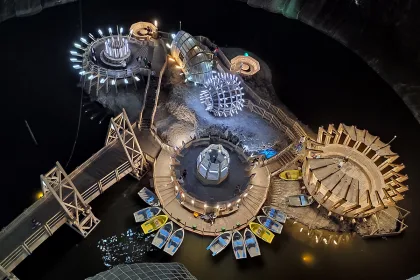Lafarge Iraq is driving diversification for both a more sustainable national economy and to improve the lives of local people.
BUILDING A BRIGHTER FUTURE
Iraq, like many nations, faced unprecedented challenges in 2020.
Not only was the country confronted with the adverse effects of the COVID-19 pandemic, of which we are globally familiar, but pre-existing conditions such as an economic dependency on oil have posed an alternative yet simultaneous challenge.
According to OPEC, Iraq has the fifth largest pool of proven oil reserves in the world, estimated to be roughly 140 billion barrels. With such copious resources, it is natural that such a dependency would materialise. But as the oil industry has boomed, others have faltered – a status quo that now, more than ever, needs revising.
Indeed, promoting private sector diversification to improve fiscal stability, economic governance and the country’s business environment are all highlighted by the World Bank as critical to Iraq achieving sustainable growth and stability.
In doing so, the country can turn hardship in to opportunity.
Enter Lafarge. A global enterprise that first arrived here in 2008, it has since established itself as one of Iraq’s largest non-oil investors and a key contributor to national economic diversification efforts.
Heading up the operation in Iraq is Adham ElSharkawy, Country CEO, who jumped at the opportunity to move his career across borders from the UAE when it presented itself back in 2019.
“Iraq is a larger market than the UAE, which makes the scope of work quite different in terms of volume, cement plants, number of employees and the overall complexity of the business environment,” he explains.
“The differing market conditions and segments add a lot to my experience. I am happy to be here after my time in the UAE. There is a lot we can adapt here from my experience there, and there is a lot to share with our team in the UAE as well.
“Iraq is a challenging market, but that only serves to make it an exciting working environment.”
STATE-OF-THE-ART FACILITIES
So, how does Lafarge Iraq contribute to the national economy?
The organisation focuses on two key business lines, cement and concrete, and operates out of various plants and manufacturing locations. On the cement side, it has two key plants – Bazian Cement Plant and Karbala Cement Plant.
The former can be found in the city of Sulaymaniyah in the Kurdistan Region of Iraq, having been built between 2007 and 2009. The plant currently produces OPC, salt and sulphate resistant cement (SRC), and karasta cement with an annual production capacity of 2.2 million tonnes, and features of a state-of-the-art concrete laboratory which enables the company to provide its customers with the best technical services.
The latter, meanwhile, is situated approximately 80 kilometres southwest of the Karbala province (180 kilometres south of Baghdad). Rehabilitated between 2010 and 2016, this alternate facility now has an annual production capacity of 1.8 million tonnes, primarily serving Karbala and its neighbouring cities with SRC, karasta and Al-Jisr cement.
In concrete, the firm has three sites located in the northern, central and southern regions, enabling it to serve public and private organisations and the general public across the country’s 437,072 square kilometre area.
“We meet the demands of the Iraq market through our wide network of distributors and direct retailers located in all Iraqi provinces, served by competent sales representatives,” ElSharkawy affirms.
“Lafarge is a customer and end user-centric company seeking to offer high quality, innovative and differentiated building solutions and exceptional services to its customers. Our mission is to be a reliable supplier of high-quality, innovative cement products based on diversified usages and applications contributing to the improvement of peoples’ lives.”
CONTRIBUTING TO THE IMPROVEMENT OF PEOPLE’S LIVES
This mission is being realised in multiple ways.
First, through projects, the company’s efforts on Sharey Baban being one such notable contribution. The construction, led by Qaiwan Co., will see the creation of a critical new transport link for Iraq spanning 146 kilometres once complete, with Lafarge providing the key materials for Stage 1 that comprises the first 32-kilometre stretch.
Funded by the Kurdistan regional government, the project is expected to cost IQD400 billion ($270 million) and is earmarked for completion in July 2022 having been initiated mid-2020.
“It is a 100-mile circular road that will be constructed in three stages,” ElSharkawy adds. “The first stage will start from Tasluja and end in Damrkan village in Arbat; the second stage will start in Damrkan and ends in Peshraw Tonnel in Sitak; and the third stage connects Peshraw Tonnel to Tasluja.”
Other notable construction projects the company has been involved with include the Central Bank of Iraq (designed by the late Dame Zaha Mohammad Hadid DBE RA – the iconic Iraqi architect, artist and designer), Mall of Iraq, and Basmaya Project – some of the country’s most renowned landmarks. However, it is not just through physical infrastructural contributions that Lafarge Iraq is adhering to its ethos of contributing to the improvement of peoples’ lives.
Acting as a good corporate citizen is likewise vitally important to the company, a key reason behind its health and safety and environmental efforts.
ElSharkawy explains: “As the only international cement player in market, we are proud of how transformative our health and safety policies, internal control and compliance, locally focused people development and stakeholder management efforts are, alongside our wide product range and services.
“We are also the only cement producer that has an environment department that is fully dedicated to monitoring environmental standards inside our plant, as well as supporting the community with activities such as tree plantation campaigns, celebrating earth hour, and awareness on different environmental topics.”
Sustainability is also central to Lafarge Iraq, the company continually striving to futureproof. Of late, this has taken the form of a three-pronged approach comprising people, product and digital.
“We consider personal development to be essential and ensure diversity and clear succession for our employees,” the CEO reveals. “In regard to our offering, competitors can always compete through the products, but if you continuously look for ways to meet customer demands then you will naturally sustain your business.
“During COVID we were also pushed towards a digital world, something that has helped us to find ways to make our customers’ lives easier in reaching us, buying our cement and then delivering that cement to them in their desired locations.
“Right now we are the only player that sells cement on pallets through our Palletizer Project, and also offer a mobile app (4545 application) which our customers can use to order, pay, and follow their shipments 24-seven through their smart phones.”
COMMUNITIES, CUSTOMERS, AND SUPPLIERS
Much of these efforts form the foundations upon which the company will target further operational improvements, sustainable growth and community care projects in a year that is hoped to be less challenging.
2021 promises of new projects, Lafarge itself focused on identifying new segments in the market that will support product diversification plans such as cements with smaller carbon footprints.
On the topic of environmental standards, the company will also be working closely with local authorities on a new waste management project, the purpose of which is to ensure that potentially harmful pharmaceutical waste is processed safely and properly to protect the surrounding flora and fauna.
“We are proud to have a signed contract with Pharmaceutical Syndicate of Kurdistan, Iraq, where we will co-process all the medical waste in the region,” adds ElSharkawy.
Much like its relationship with partners such as Pharmaceutical Syndicate, the CEO also identifies its suppliers to be similarly critical to the company achieving its ambitions for 2021.
He continues: “We’ve developed a strong supply chain model that is vital to our business, from sales and operations to procurement and contracting to warehouse management, and equally distribution and transport.
“Just like our customers, we put our suppliers at the centre of our operation by cultivating long lasting relationships, upholding trust and loyalty and ensuring the logical and strategic continuity of our business during the high and low seasons.”
Indeed, between supporting people, excelling with its environmental ambitions, digitising operations and targeting new product launches, it is the relations that Lafarge Iraq maintains with communities, customers and suppliers that will continue to the bedrock of the operation’s success for years to come.





























